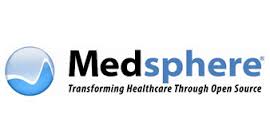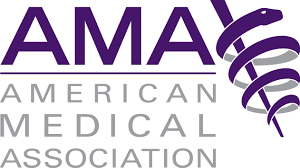Meaningful Use
See the following -
Healthcare Has Cost Problems, but IT and EHRs Do Not Have to be One of Them
 I’m proud to lead a group of intelligent and energetic technology professionals committed to developing a robust healthcare IT system that is (1) easy for clinicians to use, (2) improves patient health and (3) doesn’t bankrupt hospital budgets. We think any sustainable system must have those three key requirements. And how is healthcare doing thus far? The EHRs available today are developing rapidly. Vendors are making frequent and impactful improvements to improve system usability. Clinicians are getting better at maximizing the contribution healthcare IT makes to patient health and safety. It’s not hard to see how healthcare IT can meet the first two requirements and broadly contribute to improved healthcare.
I’m proud to lead a group of intelligent and energetic technology professionals committed to developing a robust healthcare IT system that is (1) easy for clinicians to use, (2) improves patient health and (3) doesn’t bankrupt hospital budgets. We think any sustainable system must have those three key requirements. And how is healthcare doing thus far? The EHRs available today are developing rapidly. Vendors are making frequent and impactful improvements to improve system usability. Clinicians are getting better at maximizing the contribution healthcare IT makes to patient health and safety. It’s not hard to see how healthcare IT can meet the first two requirements and broadly contribute to improved healthcare.
- Login to post comments
HIMSS2015: OSEHRA to Exhibit at Annual HIMSS Conference in Chicago
The Open Source Electronic Health Record Alliance (OSEHRA) will return as an exhibitor at the Healthcare Information and Management Society (HIMSS) Annual Conference and Exhibition from Monday, April 13 through Wednesday, April 15, 2015, in Chicago, Illinois...During the three-day conference, OSEHRA will showcase significant achievements at Booth 7530. Attendees will learn of the successes, challenges, and lessons gained from the institutionalization of VistA within VA, the support of the domestic private sector market, and the international implementations of VistA by the UK and Jordan.
- Login to post comments
How are Clinical Decision Support Artifacts Tested Today?
 In October 2018 the Centers for Disease Control and Prevention (CDC) issued a Request for Information (RFI) for a Natural Test Collaborative (NTC). Through a series of questions, the RFI seeks opinions and information about "The development of a national testbed (notionally called the National Test Collaborative (NTC)) for real-world testing of health information technology (IT)" and "Approaches for creating a sustainable infrastructure" to achieve it. The scope of this RFI is daunting. It might be useful, rather than to try to tackle this whole topic broadly but superficially, to take just one Clinical Decision Support (CDS) domain and show as completely as possible how testing is currently done.
In October 2018 the Centers for Disease Control and Prevention (CDC) issued a Request for Information (RFI) for a Natural Test Collaborative (NTC). Through a series of questions, the RFI seeks opinions and information about "The development of a national testbed (notionally called the National Test Collaborative (NTC)) for real-world testing of health information technology (IT)" and "Approaches for creating a sustainable infrastructure" to achieve it. The scope of this RFI is daunting. It might be useful, rather than to try to tackle this whole topic broadly but superficially, to take just one Clinical Decision Support (CDS) domain and show as completely as possible how testing is currently done.
- Login to post comments
How EHRs Tied Up Physician Time in 2015
As the year draws to a close, we’re taking a look at five of the topics that struck a special chord with the medical community throughout 2015. Burdensome regulations and technology have led physicians to spend considerable time struggling with their electronic health records (EHR). Fortunately, policymakers and health IT developers are starting to take note...
- Login to post comments
Hurricanes Harvey and Irma Draw the Line - Time for the US to Embrace Open Source Emergency and Disaster Response
 For nearly 20 years now the global open source community and applications have been a keystone to disaster relief efforts around the world. The enormous number of disaster relief applications and knowledge that has been developed through all these years, should, and needs to be leveraged in the current crisis. For that reason, Open Health News is starting a series of articles to highlight some of the most important solutions. A substantial portion the open source applications for emergency and disaster response that exist are actually already on the news website in the form of articles and resource pages.
For nearly 20 years now the global open source community and applications have been a keystone to disaster relief efforts around the world. The enormous number of disaster relief applications and knowledge that has been developed through all these years, should, and needs to be leveraged in the current crisis. For that reason, Open Health News is starting a series of articles to highlight some of the most important solutions. A substantial portion the open source applications for emergency and disaster response that exist are actually already on the news website in the form of articles and resource pages.
- The Future Is Open
- Login to post comments
Increasing Health IT, EHR Investment Runs Up Practice Costs
 New data from MGMA shows that increasing health IT and EHR investments are running up major practice costs. Health IT and EHR investments are costing physician-owned multispecialty practices thousands of dollars per physician, according to a new report from the Medical Group Management Association (MGMA). The 2016 MGMA Cost and Revenue Report shows that health technologies such as EHRs ran physician practices up to $32,500 per physician in 2015...
New data from MGMA shows that increasing health IT and EHR investments are running up major practice costs. Health IT and EHR investments are costing physician-owned multispecialty practices thousands of dollars per physician, according to a new report from the Medical Group Management Association (MGMA). The 2016 MGMA Cost and Revenue Report shows that health technologies such as EHRs ran physician practices up to $32,500 per physician in 2015...
- Login to post comments
Is Machine Interoperability the Next Unusable Level of Meaningful Use?
 As the HIMSS15 extravaganza is getting under way, and every EHR vendor flush with cash from the Meaningful Use bonanza is preparing to take its unusable product to the next level, machine interoperability is shaping up to be the belle of the ball. A simple minded person may be tempted to wonder why people who, for decades, manufactured and sold EHRs that don’t talk to each other, are all of a sudden possessed by interoperability fever. The answer is deceptively simple. After exhausting the artificially created market for EHRs, these powerful captains of industry figured out that extracting rents for machine interoperability is the next big thing.
As the HIMSS15 extravaganza is getting under way, and every EHR vendor flush with cash from the Meaningful Use bonanza is preparing to take its unusable product to the next level, machine interoperability is shaping up to be the belle of the ball. A simple minded person may be tempted to wonder why people who, for decades, manufactured and sold EHRs that don’t talk to each other, are all of a sudden possessed by interoperability fever. The answer is deceptively simple. After exhausting the artificially created market for EHRs, these powerful captains of industry figured out that extracting rents for machine interoperability is the next big thing.
- Login to post comments
Is The 1.5+ Trillion Dollar HITECH Act a Failure?
 Hopefully, the public statements made by President Obama and Vice President Biden will lead to a public debate over the monumental problems that the HITECH Act and proprietary EHR vendors have caused the American people. While the press continues to report the figure of $35 billion as the cost of implementing EHRs, that figure does not tell the entire story. Perhaps the next step is to provide accountability and transparency. That would start with firm numbers regarding the real costs of EHR implementations forced on an unprepared healthcare system by the HITECH Act.
Hopefully, the public statements made by President Obama and Vice President Biden will lead to a public debate over the monumental problems that the HITECH Act and proprietary EHR vendors have caused the American people. While the press continues to report the figure of $35 billion as the cost of implementing EHRs, that figure does not tell the entire story. Perhaps the next step is to provide accountability and transparency. That would start with firm numbers regarding the real costs of EHR implementations forced on an unprepared healthcare system by the HITECH Act.
- The Future Is Open
- Login to post comments
Jonathan Perlin’s ‘Elevator Pitch to the President’ on Health IT
 What would you say if you had to make an “elevator pitch” in just three to five minutes to the President of the United States about what to focus on in terms of the nation’s healthcare system? That was the question put to panelists at a Sept. 26 meeting of the National Academy of Medicine (NAM). Jonathan Perlin, M.D., chief medical officer of Hospital Corporation of America (HCA), responded: “It’s all about the data”...
What would you say if you had to make an “elevator pitch” in just three to five minutes to the President of the United States about what to focus on in terms of the nation’s healthcare system? That was the question put to panelists at a Sept. 26 meeting of the National Academy of Medicine (NAM). Jonathan Perlin, M.D., chief medical officer of Hospital Corporation of America (HCA), responded: “It’s all about the data”...
- Login to post comments
Limited EHR Access To Lead Patients To Switch Providers?
As eligible hospitals and professionals in the EHR Incentive Programs already know, Stage 2 Meaningful Use ups the ante on patient engagement by requiring these providers to exceed certain thresholds for patient access to health information. But why should providers care about EHR patient access?
- Login to post comments
Many Current EHR Vendors Will Not Survive For Long
CMS just released the December 2012 attestation data, and one thing is abundantly clear—many EHR vendors will not be around to see Stage 2. Read More »
Many Device Manufacturers May Miss Looming UDI Deadline
Vendors that sell medical devices to healthcare organizations will be scrambling to meet a mid-September deadline to get unique identifiers and meet requirements to match them with devices and accompanying software. Loftware, a vendor of unique device identifier labeling solutions, recently conducted a survey of about 120 medical device professionals and found that only 15 percent of respondents said they believe their organizations are ready for the September 24 deadline...
- Login to post comments
Marc Probst: Meaningful Use Stage 3 a mistake
"The concept and the power of special interests is alive and well, particularly when you're talking about a $35 billion program," Probst said, referring to the Meaningful Use incentive program. "The federal advisory committees tried to filter through that, but I'm not sure that was always accomplished."
- Login to post comments
Medsphere Systems and ChartLogic Merge
 Medsphere Systems Corporation and ChartLogic, Inc., today announced that they have executed a definitive agreement to merge the two companies. The transaction will expand Medsphere’s existing enterprise healthcare IT products and services to include ChartLogic’s proven ambulatory electronic health record (EHR), practice management and medical billing solutions. ChartLogic will retain its name and operate as a division of Medsphere; the expanded company will offer integrated delivery networks and physician practices an affordable and interoperable choice that meets the clinical needs of providers across the spectrum of care...
Medsphere Systems Corporation and ChartLogic, Inc., today announced that they have executed a definitive agreement to merge the two companies. The transaction will expand Medsphere’s existing enterprise healthcare IT products and services to include ChartLogic’s proven ambulatory electronic health record (EHR), practice management and medical billing solutions. ChartLogic will retain its name and operate as a division of Medsphere; the expanded company will offer integrated delivery networks and physician practices an affordable and interoperable choice that meets the clinical needs of providers across the spectrum of care...
- Login to post comments
Missing from MACRA: 2 Meaningful Use millstones
 Physicians are now free from reporting on two major Meaningful Use requirements, but some doctors may not be aware of this long-sought change that became effective Jan 1. While it is hard to say how many physicians are in the dark about the change, there are anecdotal reports that some doctors don’t know that the Medicare Access and CHIP Reauthorization Act (MACRA) final rule agreed with AMA’s call to drop computerized physician order entry (CPOE) and clinical decision support (CDS) from Medicare’s payment program. What’s safe to say for certain is that the move comes as relief to physicians, based on surveys measuring their attitudes on electronic health records (EHR) usability in patient care...
Physicians are now free from reporting on two major Meaningful Use requirements, but some doctors may not be aware of this long-sought change that became effective Jan 1. While it is hard to say how many physicians are in the dark about the change, there are anecdotal reports that some doctors don’t know that the Medicare Access and CHIP Reauthorization Act (MACRA) final rule agreed with AMA’s call to drop computerized physician order entry (CPOE) and clinical decision support (CDS) from Medicare’s payment program. What’s safe to say for certain is that the move comes as relief to physicians, based on surveys measuring their attitudes on electronic health records (EHR) usability in patient care...
- Login to post comments